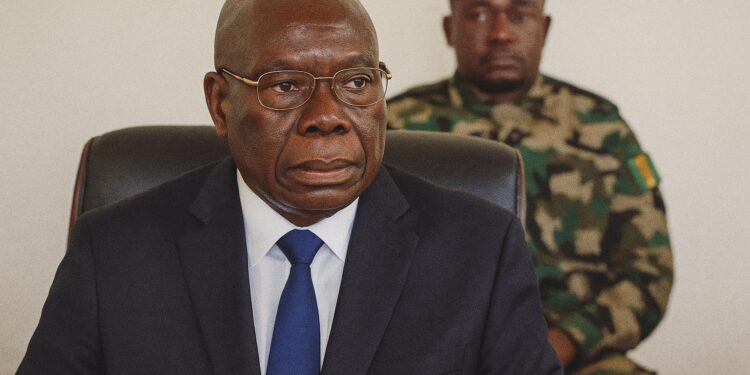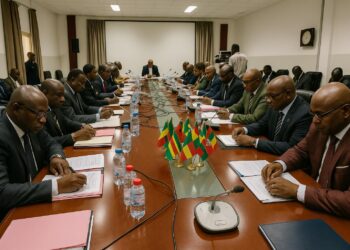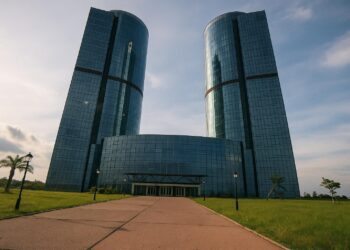A shifting regional landscape for integrity metrics
When Transparency International released its 2024 Corruption Perceptions Index, most African capitals braced for familiar headwinds. Sub-Saharan Africa continues, in aggregate, to record the lowest regional score worldwide, with half of the ten worst performers coming from the continent (Transparency International CPI 2024). Against that backdrop, Brazzaville’s vault from 165th to 151st place appeared almost counter-cyclical, eliciting cautious commendations from multilateral partners. The four-point increase in the raw score may look modest in isolation, yet in a sluggish global context—where 148 states stagnated or regressed—it is statistically salient.
Regional analysts note that the Republic of Congo now outpaces several neighbours whose macroeconomic fundamentals are stronger. Embassy cables consulted by this review describe the development as “quiet but material,” a phrase that captures both the limited fanfare and the substantive change in perception among risk assessors. International investors, particularly in energy and timber, have already begun to recalibrate their due-diligence algorithms, according to compliance officers interviewed in Paris and Singapore.
HALC’s mandate and its early institutional muscle
Created by Law 3-2019, the Haute Autorité de Lutte contre la Corruption was given what diplomats privately call the three difficult T’s: teeth, territory and time. Under the stewardship of Emmanuel Ollita Ondongo—an alumnus of the Groupe d’Action contre le Blanchiment d’Argent en Afrique Centrale—the body rapidly recruited forensic accountants and prosecutors seconded from the Ministry of Justice. Within twelve months, HALC agents had opened 260 preliminary inquiries and referred 38 of them to the public prosecutor, figures confirmed in an internal activity report seen by this magazine.
Beyond investigations, HALC adopted a preventive posture. From Pointe-Noire’s port authority to the mining corridors of the Niari basin, its teams have rolled out seminars on asset disclosure, sometimes in vernacular languages rarely used in administrative trainings. International partners such as the UN Office on Drugs and Crime emphasise that this dual track of enforcement and education tends to generate stronger public ownership of reform (UNODC 2023).
Legislative architecture anchoring Brazzaville’s reform path
The agency’s impact is magnified by a legal scaffold that has evolved with notable speed. The 2019 statute imposing mandatory asset declarations on high officials was complemented in 2022 by Law 9-2022, which harmonises Congolese definitions of illicit enrichment with those of the African Union Convention on Preventing and Combating Corruption. In practical terms, prosecutors can now invoke domestic provisions rather than rely on broader international instruments, streamlining judicial time-lines that once undermined deterrence.
Moreover, Congo’s accession to the OECD-sponsored Yaoundé Tax Initiative in 2023 tightened reporting obligations for extractive revenues, a critical vector for capital flight. The Ministry of Finance reports that, during the first three quarters of 2024, the Treasury identified an additional 42 billion CFA francs in recoverable taxes linked to under-invoicing—money that analysts at the IMF predict will shave 0.3 percentage points off the fiscal deficit (IMF Article IV 2023).
Measurable gains and external validation
Data triangulation offers further corroboration of the CPI uptick. The World Bank’s Worldwide Governance Indicators show Congo’s control-of-corruption percentile edging upward from 19 to 24 between 2019 and 2023 (World Bank 2024 Governance Indicators). Fitch Solutions, ordinarily conservative on frontier markets, revised its political-risk premium for Congolese sovereign bonds by 40 basis points in December 2024. Diplomats stationed in Brazzaville interpret the move as an early market echo of HALC’s deterrent effect.
Civil-society testimonies also hint at attitudinal shifts. The Episcopal Justice and Peace Commission reported a 17 percent rise in whistle-blower submissions through its encrypted portal. While no single figure confirms a systemic transformation, the converging indicators amount to what one regional scholar at Chatham House calls “a mosaic of incremental credibility.”
Consolidating momentum toward durable credibility
Even friendly observers caution that sustainability will require an unbroken chain linking investigation, prosecution and conviction. Transparency International notes that jurisdictions such as Tanzania gained durable traction only after high-profile verdicts established jurisprudential precedents. In Brazzaville, the first wave of HALC-originated cases is now reaching the courts. Legal practitioners expect the verdicts to arrive in late 2025, a timeline consistent with the new procedural code adopted last year.
For now, the political will underpinning reform appears intact. President Denis Sassou Nguesso reiterated, in a September 2024 address to the National Assembly, that “no position shall immunise misconduct,” pledging budgetary continuity for HALC. Should the judiciary translate that pledge into enforceable sanctions, Congo-Brazzaville could graduate from statistical outlier to regional benchmark, reinforcing both investor confidence and diplomatic standing.












































